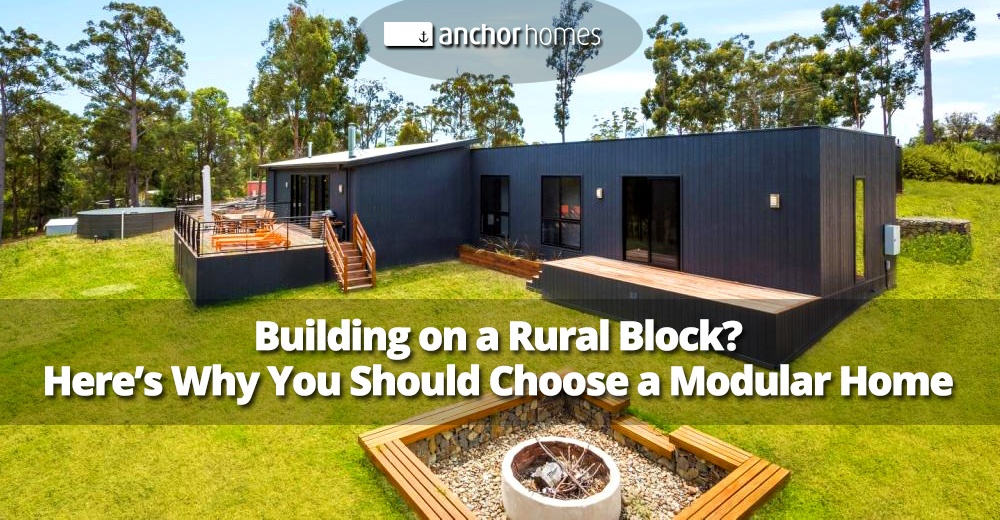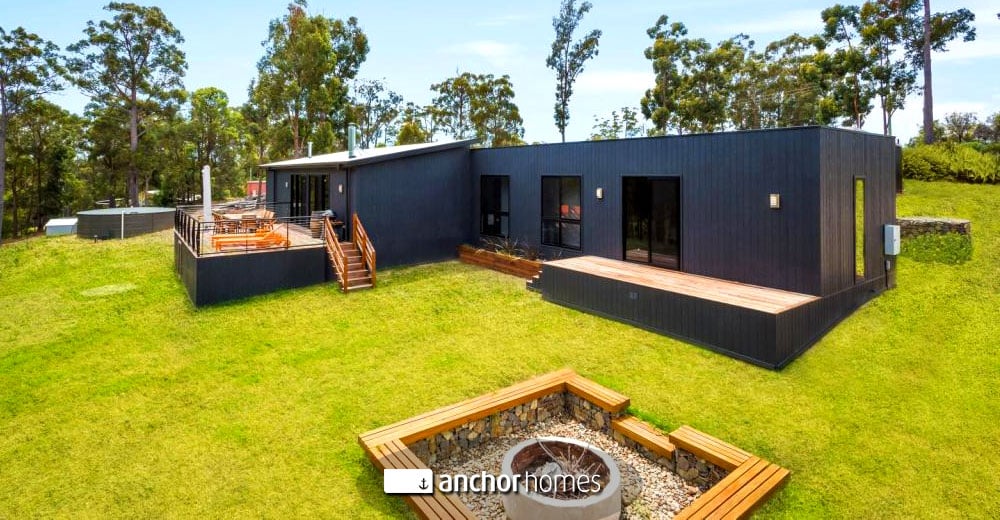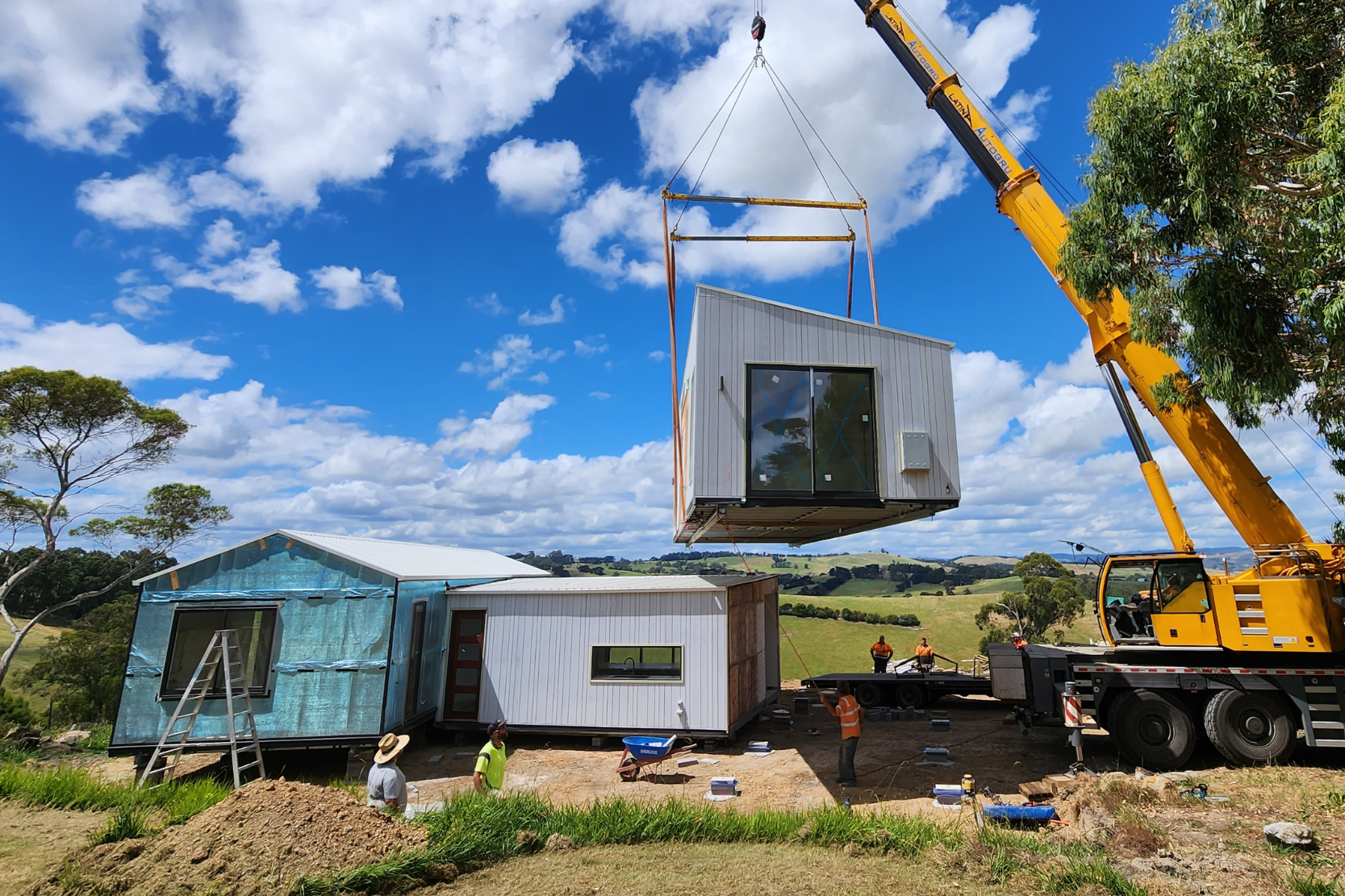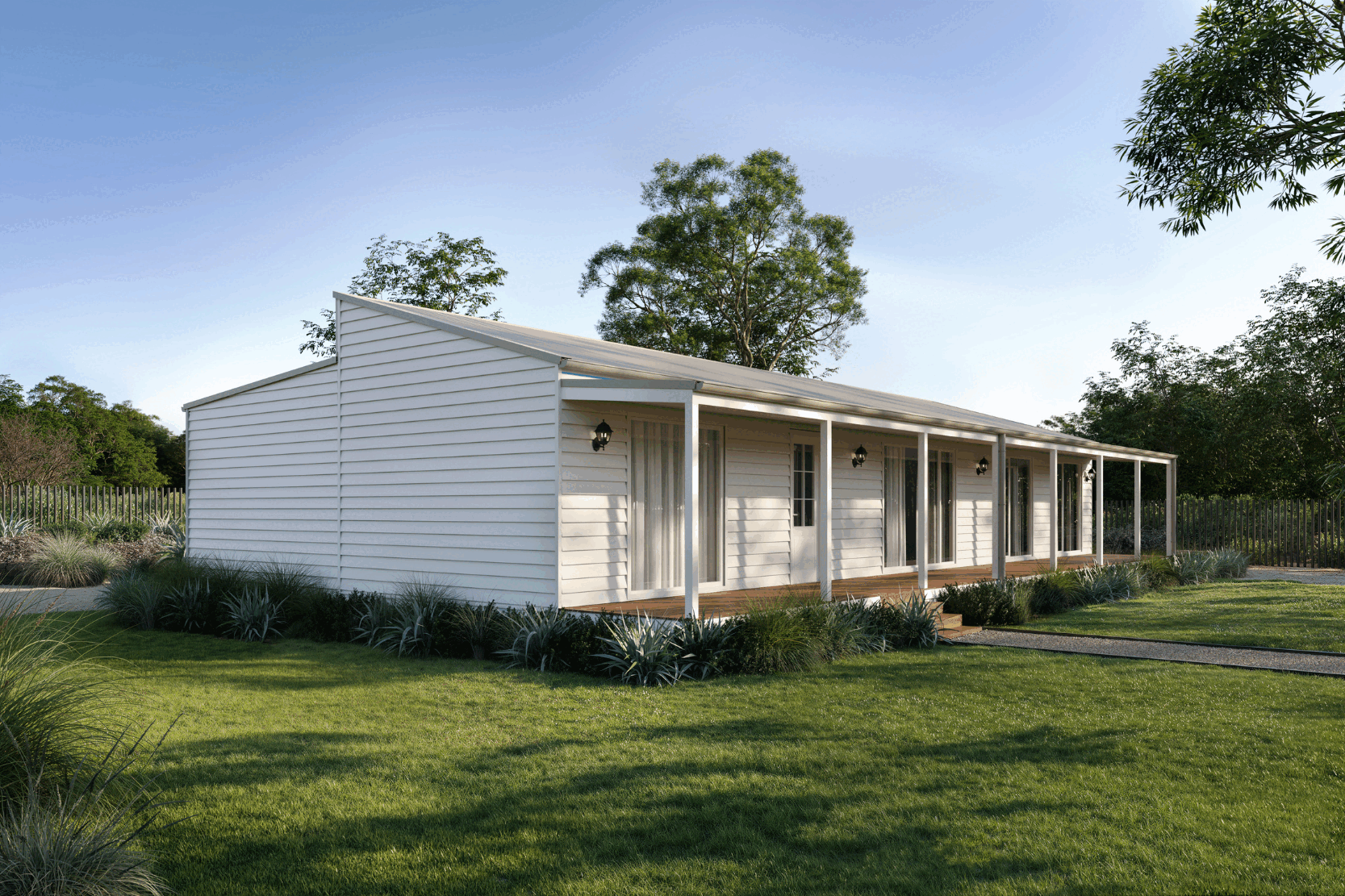Article
Building on a Rural Block? Here’s Why You Should Choose a Modular Home
Buying land
August 18, 2017

Written by
Laurie Raikes

Whether you’ve grown up in the country, or are leaving the city for greener pastures, building on a rural block offers many benefits.
The opportunity to be closer to nature and to escape the hustle of city living is certainly an attractive prospect. But while this is great news in the longer term, building a new home on a rural block, does present some challenges.
But building in the country doesn’t need to be a headache. Modular home construction in rural and remote locations can minimise the challenges and make the process faster, easier and more economical.
So, if you’ve found yourself the perfect block and are ready to build in the country, here‘s why building a modular home is a great choice.
Simplified Preliminary Stage
Before you can build in any location, but especially in rural areas, there are a number of preliminary reports and ratings you’ll need to obtain. Which ones are relevant to you will depend on your location and your unique site conditions and surrounds.
If you’re located in a Bushfire Prone Area, you’ll need to organise an assessment to discover your BAL rating and may require a Bushfire Management Statement.
Other pre-construction reports that are required can include an Engineer’s Soil Report, Energy Rating Report, Wind Classification Report and Land Capability Assessment.
You’ll need to obtain any mandatory reports before construction can begin, and it can be difficult to navigate your way through understanding what is required and finding the right people to help.
Working with a modular home builder like Anchor Homes, you’ll have guidance and support throughout the preliminary stage, which keeps things moving and minimises delays. Plus, the most commonly required reports are a standard inclusion in our price.
The Right Construction Team
While the distance from cities and towns is often one of the biggest drawcards for those who move to the country, when building a new home, it’s also one of the biggest challenges.
Depending on your location, there may be a shortage of local builders, and if their services are in demand, you might have to wait weeks or months before you can start. And with limited options, there’s also a chance you won’t find a builder you feel comfortable working with.
Keep in mind, it’s not just builders that you’ll need – there’s also other tradesmen like plumbers, electricians, plasterers and painters.
If you’re unable to find local operators and need to look further afield, you may also have to pay for accommodation for the construction team – and if the build takes a few months, this adds a huge chunk to your overall cost.
Building a modular home takes the hassle and expense out of finding and managing your construction team. Your home is built off-site in just 8-10 weeks, almost to completion, by our experienced team.
It’s then transported directly to your block, where our on-site crew will install and complete your home so it’s ready to move in. This can shave weeks or even months off your build when compared to conventional construction, and can potentially provide a huge cash saving too.
Site impact and requirements
When you build a new home, whether in the city or the country, there will always be a level of site disruption. But in the country, there is the potential for greater damage.
If you have a larger block, the path the construction team take to access the build site may be longer, and that means the mess from months of machine and human traffic can be huge.
Plus, if you’re block has areas of significance like remnant bushland, the longer your site is being accessed by construction teams, the higher the risk of damage. And when your block is bigger, after months of site disruption you’ll likely have mud – and lots of it.
The modular construction process greatly reduces site disruption, as our team will only be on your site for around 6 weeks.
And because your home is delivered around 95% complete, their work to install and add the finishing touches is much less disruptive than building on-site from scratch.
Another important site consideration is the availability of connections. If they are not readily available, you may need to install additional features like a water tank or septic tank.
With Anchor, connecting to services including water, sewerage, telephone, stormwater and power are available as an optional upgrade, and our customer service team can provide personalised pricing on request.
Final Word
Living on a rural block means you’ll have plenty of space to relax, enjoy your hobbies, and lead a peaceful lifestyle. And while building your dream home in the country does present a few challenges, when you choose to build a modular home, you’ll greatly reduce many of them.
Over to You
Have you thought about building on a rural block but don’t know where to start? Our team have lots of experience helping people build in the bush, the mountains, on farmland and at the beach and we’d love to help.






.png)